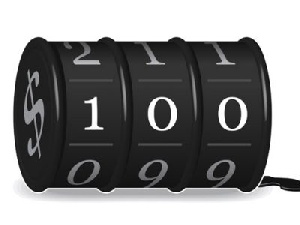Ghana’s vulnerability to the price of imported oil and gas will still remain a challenge to the economy until it becomes an oil producer itself, says Razia Khan, Regional Head of Research, Africa, Standard Chartered Bank.
She said despite the construction of the West African Gas Pipeline, problems with the Nigerian supplier and disruptions due to unrest in the Niger Delta meant that Ghana did not receive the gas it required and would continue to purchase gas at high cost.
In the Bank's Global Focus report made available to Times Business, she said "this year, the emphasis will be on Ghana's own energy-based industries as agreements are in place to ensure that the first 200bn cubic feet of gas produced from Ghanaian fields will be transferred to the state-owned petroleum company, GNPC, free of charge."
This, she said, would reduce significantly the country's gas bill and stabilise the economy in 2010.
Ghana will achieve oil producer status in the third quarter of this year, marking a structural shift in the economy.
The country's oil import bill has declined in 2009 as compared to the bill in 2008, the Bank of Ghana has said.
At a news conference in November last year, Governor of the Central Bank, Mr. Kwesi Amissah-Arthur, said the oil import bill at the end of October 2009 had increased to US$ 1.3 billion, but compares with US$ 2.1 billion for the same period of 2008; and that is a significant annual decline of 40.2 per cent.
Downstream oil and gas activity she said would open up areas of the country that have previously been excluded from industrial development.
"With its own energy sources, Ghana's long-standing energy intensity should become less of a threat to macroeconomic stability," she said.
The legacy effect of a fiscal deficit in excess of 20 per cent of Gross Domestic Product (GDP) in 2008 she said still continues, adding that Ghana's biggest challenge would be whether to reduce domestic interest rates and prevent domestic debt from rising further.
"While the latest surveys indicate some recovery in business and consumer sentiment, the more important test will be a recovery from the outsized twin deficits that accompanied the food-and fuel-related crisis in 2008. 2009 was a year of much-needed rebalancing, although this took its toll on growth," she said.
Ms. Khan said high interest rates resulting from Ghana's debt overhang were particularly worrying, with the Non Performing Loan ratio rising from 7.6 per cent in September 2008 to 13.2 per cent in September 2009.
"With monetary easing now in place, 2010 at least holds the prospect of a more meaningful recovery," she said.
Ghana's economy, she said, would benefit from its relative diversification, with agriculture remaining a focus despite new oil production.
The government, Ms. Khan said, would continue to import subsidised fertiliser and would encourage more large scale commercial farming. Tariffs on imported food have been reinstated to encourage domestic production.
On inflation, she said while rising oil prices and tariffs on imported food pose some risk to the inflation outlook in 2010, a gradual disinflation trend, helped by the base effect, is expected to remain in place.
"The speculative holding of Foreign Exchange that accompanied Ghana's 2008 balance-of-payments crisis should continue to reverse as we get closer to oil production optimistically expected this year," she said.
Growth in foreign currency accounts at commercial banks she said has been slowing adding that the International Monetary Fund's Special Drawing Rights (SDR) allocation had also helped to boost Foreign Exchange reserves, which now stand at 2.4 months of import cover.
"Further' gains are expected. Fiscal policy will remain focused on narrowing Ghana's imbalances," she said.
Business News of Thursday, 7 January 2010
Source: The Ghanaian Times

















